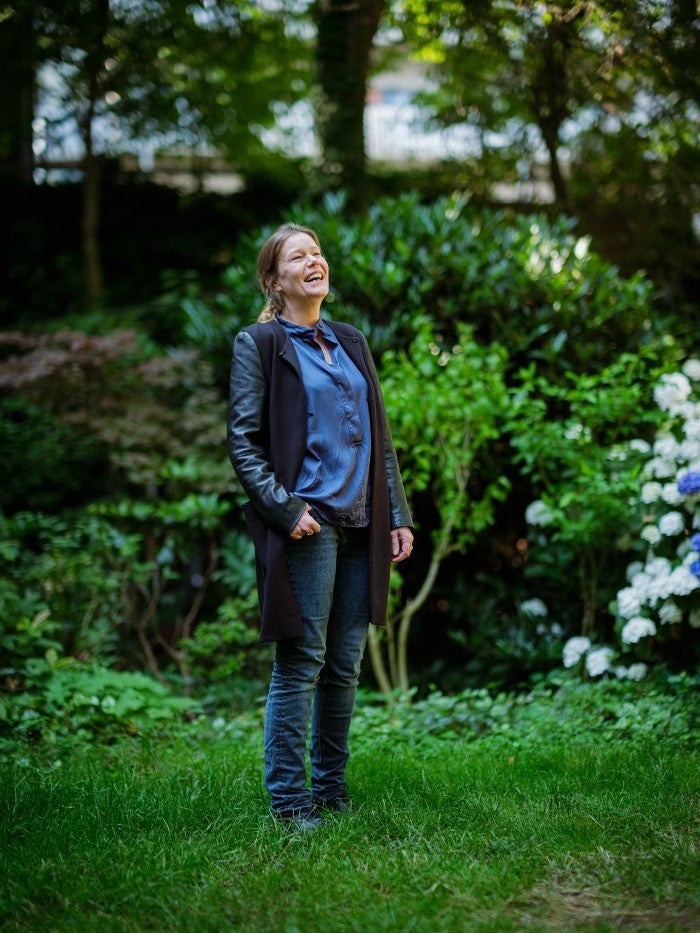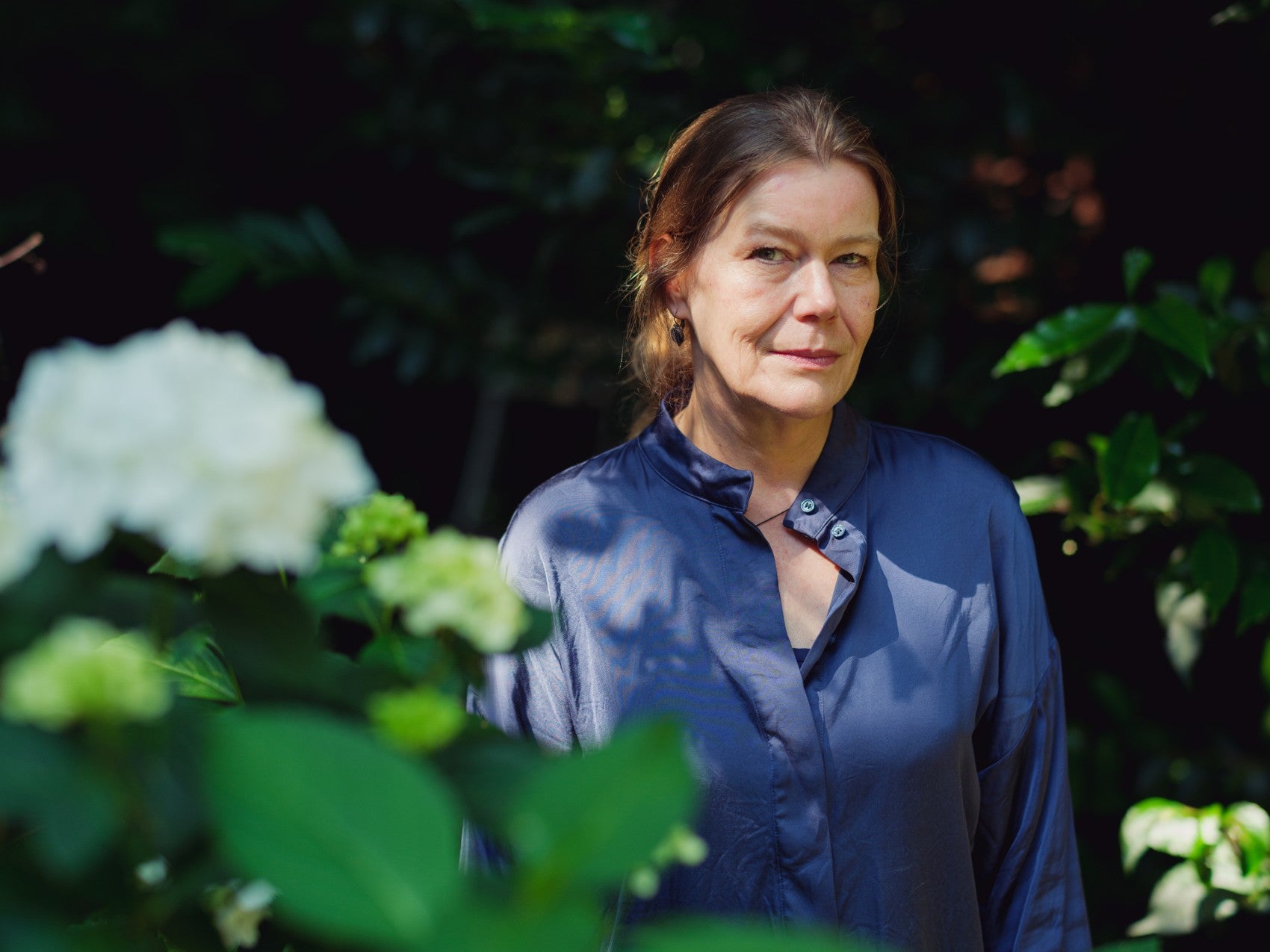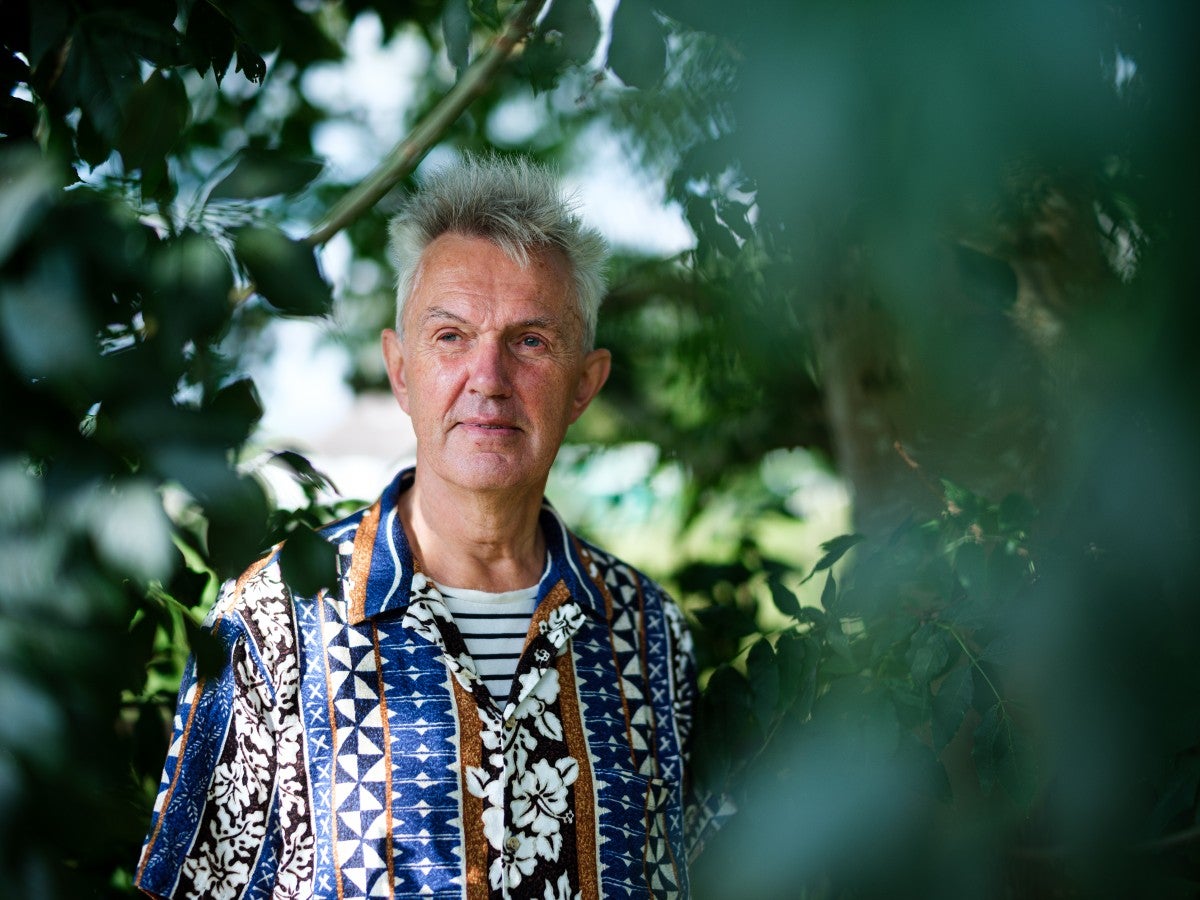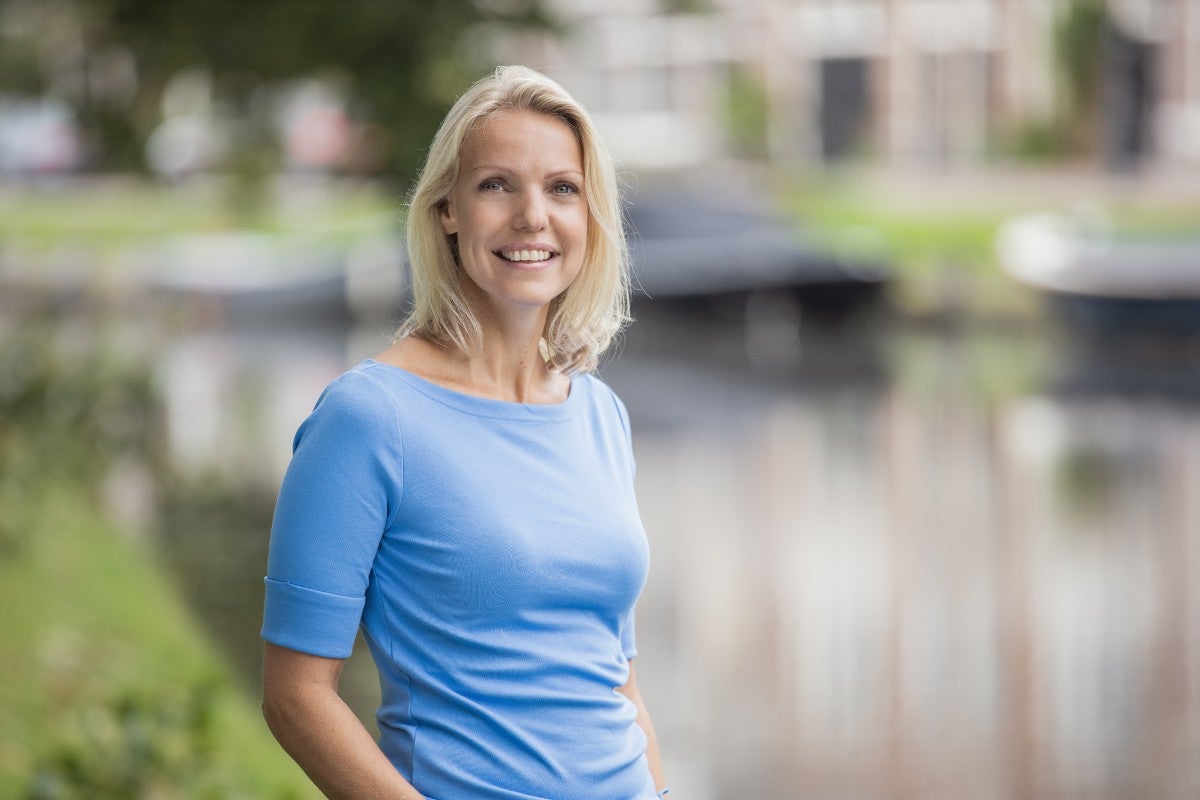Désanne van Brederode studied philosophy at Vrije Universiteit Amsterdam and is this year's Writer in Residence, as she will give lectures to students. In an interview with VU Magazine, she talks about her own sometimes turbulent student years, dancing on the roof of the VU, and rekindling your inner fire.
Next to a busy intersection in the heart of Amsterdam, hidden in a side street, lies a courtyard. The complex, built in 1882 to house widows, is now an oasis of people with an inner garden full of flowers. „You almost forget you're in Amsterdam when you're here."
When you think of the VU, what comes to mind?
„I think of a building that still looks terrible, but also of the warmth I found inside. I studied at the philosophy faculty on the 13th floor, and back then, everyone really knew each other. I never felt like just a number. A professor would regularly recommend a book he thought would be just right for me."
„When I decided to write an essay on Michel Foucault's History of Sexuality, another professor suggested I choose a different topic. When I asked why, he explained that Foucault's work portrays a grim, oppressive worldview, and a previous student who was sensitive to it fell into depression after reading it. Such concern for students wasn't required, but I found it very touching."
„In the early years, I wanted to shock people, reading raw, provocative thinkers and expressing my thoughts without any filter."
Was your time as a student a formative period in your life?
„Without a doubt. In the early years, I wanted to shock people, reading raw, provocative thinkers and expressing my thoughts without any filter. I wanted to break away from my Catholic, new age-oriented family, with a father who, even after his priesthood, still exuded a priestly positive, hopeful view of humanity—often reasoning away suffering and evil. I wanted to do everything differently."
„At that time, I was often either deeply in love, very angry, or profoundly sad. But during my studies, I was given the space to explore certain pains, fears, and desires and found an outlet in writing. This helped me find a fluid yet calm balance between radiant optimism and the darker sides of myself and the world."
„Nowadays, you don’t get that kind of opportunity from the start. I think if you're forced into a mold too young—focused solely on study results, graduating quickly, and finding a job—you don’t have the space for that kind of struggling 'self-development.'"
„Instead, people listen out of politeness while mentally loading their verbal guns to argue back."
Is this playfulness something you want to encourage in students as Writer in Residence?
„Yes, it's important that we play more without a clear goal. Sometimes I think playfulness could solve many problems. Much polarization isn't helped by more talking or more explaining. Instead, people listen out of politeness while mentally loading their verbal guns to argue back. Where people can meet, space often emerges. The practicality of things gives way, and you're just having fun together."

„Lately, I've been upset about the rise of the PVV, and Gidi Markuszower stands out to me. He says all sorts of things about Palestine, which I care deeply about. In all his opinions and how he expresses them, he's my polar opposite, but there's something about him I find sympathetic. I think: wouldn’t it be wonderful if you could say to someone like that, "How about we take a long walk on the beach, leave the hard opinions at home, and talk about our feelings on world events?" But can you see that happening? I can't."
It seems starting a hobby without a goal doesn't fit in today’s world either.
„Exactly. When my son was about two and I was often at home with his father (literary critic Arjan Peters), I felt the need to join a club, get out, and meet others. I saw an ad for eurythmy, a dance form I remembered from my time at a Waldorf school."
„Eurythmy is an anthroposophical art form where you try to express a poem set to music through movement. It looks like dance from the outside. However, you don't show what you feel, nor use the music under a clever choreography; instead, you make what sounds visible, bringing words, sounds, music tones, and rhythms to life with spirit. If I had pursued it with a goal, like becoming more flexible or stress-resistant, I would have quit. I would have been too focused on seeing results. Now, I do it just for fun. And sometimes, I discover it does change me."
„The beauty of dance is that it removes the functionality of movement. You can use your body for the beauty of movement itself."
In your latest book, How to Save the Fire, you advocate for more fire in the world around us, whether it's hearth fires, lantern candles, or inner fire: everything is diminishing. Does practicing eurythmy ignite your fire?
„Definitely. Eurythmy is more than a passion; it's a spiritual art form that brings me close to the secrets of the world of sounds, intervals, tones, and rhythms, their moods, and their effects on our bodies and minds. It fills me with deep reverence. A term like 'the harmony of the spheres' from ancient Greek philosophy isn't just a nice idea. You can approach it, or rather, you can learn to listen and move so actively, receptively, and precisely that it approaches you and others."
„The beauty of dance is that it removes the functionality of movement. You can use your body for the beauty of movement itself. Just like the young children in my neighborhood, whom I often watch, still skipping through the courtyard without any goal. Why did we stop doing that as adults?"
„Once, during a lecture, I got very angry. We were discussing Nietzsche and physicality. Nietzsche said that to think well, you must also be able to dance. My teacher thought this was 'just' a metaphor, not something to be taken literally. That made me so mad. With my then-boyfriend, I asked for the key to the VU's roof. Together, we danced happily towards the sky without music. We did it for Nietzsche. The funny thing is, I now dance every week in the Andrieskerk, behind the VU, where I almost looked out from that top floor back then."
„It used to be more about defending myself. The tone was often: if you can think, you can't be religious."
In previous interviews, the combination of your faith and scientific work often comes up. Do you feel the need to justify this?
„I've been participating as a writer for about 30 years now. The harshness and silly jokes I encountered before are gone, but there will always be a group that ridicules my faith. It used to be more about defending myself. The tone was often: if you can think, you can't be religious. Lately, I see more and more that someone's spiritual inspiration is allowed. That's a trend I hope to contribute to."
You write that inner fire is increasingly hard to feel, partly because we're so attached to our phones. How do you handle this?
„Very simply: I don't have a smartphone. And my laptop is so old that it can't be carried around. People are always very surprised when I tell them this, but I find it strange that others haven't made a conscious choice regarding smartphones or using WhatsApp. The default is to have them, but I don't buy things I don't want to use. Otherwise, I’d never have found the peace to write another book. Laughing: "I secretly hope to be the last person alive without a smartphone."





